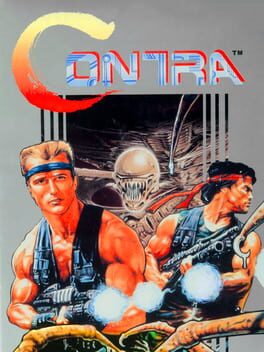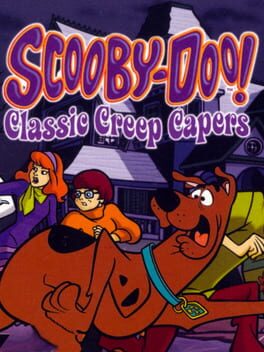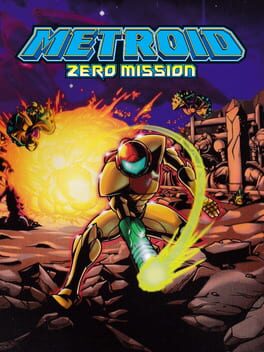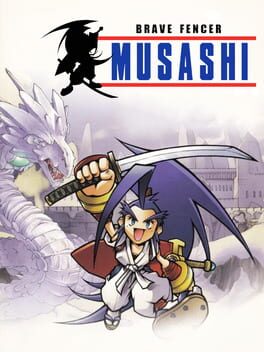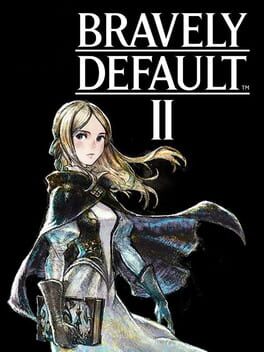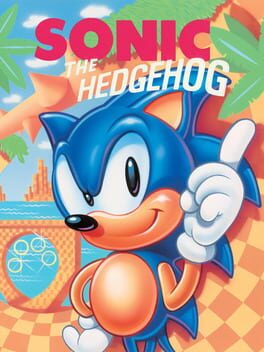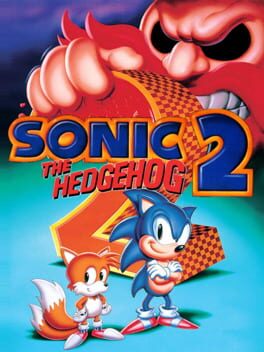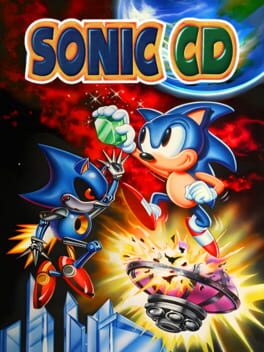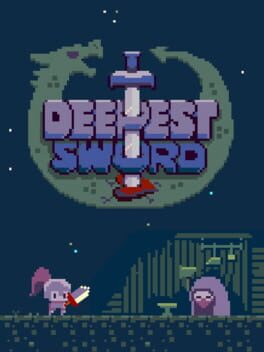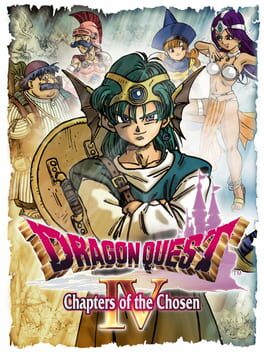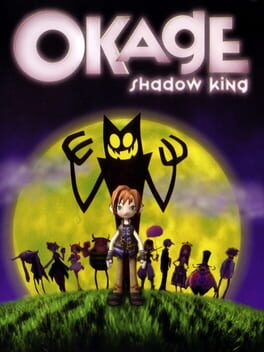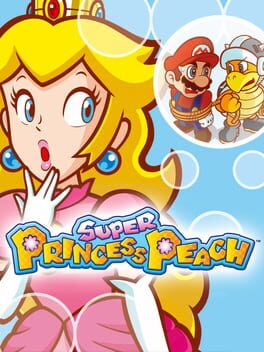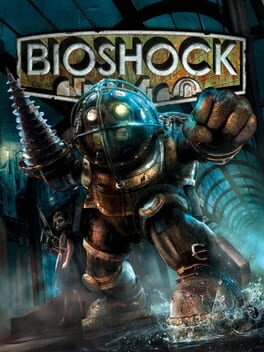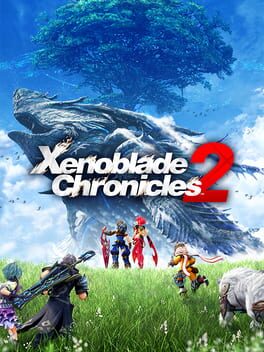SwitSwat
BACKER
1988
I distinctly remember playing this game quite a bit when I was a kid. Whether I ever finished it or not back then remains a mystery, because the final stage with the H.R. Giger looking alien looked so familiar, but the actual ending wasn't ringing a bell. If I did in fact finish this back then, then it only stands to reason I've gotten worse at video games, because there is no way in hell that I would have finished this right now without the blessed Konami Code.
Funny enough, I did not realize that the 30 lives cheat remains in effect even after selecting continue. I just assumed you went back to the regular 3 lives upon losing the initial 30. So there I was, reloading save states like an idiot and cursing this game under my breath. Some of the enemy spawns in this game with the graphical pop-in and relentless hordes are just near impossible to avoid at times. I guess that's NES era difficulty for ya. That said, this game would have rated much lower for me if I didn't learn the truth about said Konami Code, which essentially gives you 120 lives to complete its 8 eclectic stages, which I feel is plenty unless you are actively just trying to brute force the game and rush it.
It's a pretty decent game, with the core run-and-gun gameplay being satisfying enough, though it's nothing particularly special. It makes me curious to try the co-op (again?), though. I can't really remember if I ever played co-op with my dad or something, but regardless, it seems to make for a chaotic and fun time with a friend.
Funny enough, I did not realize that the 30 lives cheat remains in effect even after selecting continue. I just assumed you went back to the regular 3 lives upon losing the initial 30. So there I was, reloading save states like an idiot and cursing this game under my breath. Some of the enemy spawns in this game with the graphical pop-in and relentless hordes are just near impossible to avoid at times. I guess that's NES era difficulty for ya. That said, this game would have rated much lower for me if I didn't learn the truth about said Konami Code, which essentially gives you 120 lives to complete its 8 eclectic stages, which I feel is plenty unless you are actively just trying to brute force the game and rush it.
It's a pretty decent game, with the core run-and-gun gameplay being satisfying enough, though it's nothing particularly special. It makes me curious to try the co-op (again?), though. I can't really remember if I ever played co-op with my dad or something, but regardless, it seems to make for a chaotic and fun time with a friend.
I vaguely remember watching Scooby-Doo and the Alien Invaders on VHS a lot as a young kid. At the end of the film, there was a commercial for this game, and somehow, they managed to capture my young mind's attention. I NEEDED this game!
Well, somewhere along the lines I managed to acquire it. All I remember is that I couldn't get past the first level. I thought that coming back to it as an adult meant that this game would be a breeze to get through... I was wrong. And no, I'm not saying that this game is hard, per se, but there are some factors that make it difficult to get through.
Gameplay-wise, there's not much to it. There are 4 levels in which you have to solve a mystery for each. You play as Shaggy and collect items which can either be clues or trap pieces to catch the villain... and that's it. It's basically one big game of Go Fetch! You have a "fright" meter which drops when Shaggy gets scared, which happens when touching enemies or dangerous obstacles. You can pick up Scooby Snacks to regain courage and fill the meter again, but you have unlimited lives, so there's no big repercussion for failing besides starting again from a previous area. There's some very basic puzzles to solve on occasion, but they don't add anything to the already simplistic and boring gameplay.
What makes the whole ordeal more infuriating are the controls. With the fixed camera angles, you're constantly struggling to orientate yourself after it switches. You could be moving up by pressing up, but then then you'll switch to a new camera angle and be facing downward... but because you're still pressing up, Shaggy will start running in the opposite direction and return to where you came from. It's honestly something that you should just experience for yourself to better understand it... or don't. Just don't bother.
It wouldn't be that big of a deal if it weren't for the ending sections of levels, in which you have to lure the monster into a trap by getting chased into it. It's very easy for them to catch up and have you lose all your "health" and start over simply because you're struggling to maneuver.
The game may only be about 2 hours long, but its mechanics (especially the movement) left me disoriented at times and really unmotivated to get through this slog. I didn't even mention the story, but it really isn't important. The whole thing feels like a simple cash grab. While you can say that about a multitude of kids games, I read that the developers actually worked closely with Hanna-Barbera and Warner Bros. to stay faithful to the source material. I guess they just forgot to make it fun. It's honestly quite disheartening that I ever had just an ounce of nostalgia for this mess.
Well, somewhere along the lines I managed to acquire it. All I remember is that I couldn't get past the first level. I thought that coming back to it as an adult meant that this game would be a breeze to get through... I was wrong. And no, I'm not saying that this game is hard, per se, but there are some factors that make it difficult to get through.
Gameplay-wise, there's not much to it. There are 4 levels in which you have to solve a mystery for each. You play as Shaggy and collect items which can either be clues or trap pieces to catch the villain... and that's it. It's basically one big game of Go Fetch! You have a "fright" meter which drops when Shaggy gets scared, which happens when touching enemies or dangerous obstacles. You can pick up Scooby Snacks to regain courage and fill the meter again, but you have unlimited lives, so there's no big repercussion for failing besides starting again from a previous area. There's some very basic puzzles to solve on occasion, but they don't add anything to the already simplistic and boring gameplay.
What makes the whole ordeal more infuriating are the controls. With the fixed camera angles, you're constantly struggling to orientate yourself after it switches. You could be moving up by pressing up, but then then you'll switch to a new camera angle and be facing downward... but because you're still pressing up, Shaggy will start running in the opposite direction and return to where you came from. It's honestly something that you should just experience for yourself to better understand it... or don't. Just don't bother.
It wouldn't be that big of a deal if it weren't for the ending sections of levels, in which you have to lure the monster into a trap by getting chased into it. It's very easy for them to catch up and have you lose all your "health" and start over simply because you're struggling to maneuver.
The game may only be about 2 hours long, but its mechanics (especially the movement) left me disoriented at times and really unmotivated to get through this slog. I didn't even mention the story, but it really isn't important. The whole thing feels like a simple cash grab. While you can say that about a multitude of kids games, I read that the developers actually worked closely with Hanna-Barbera and Warner Bros. to stay faithful to the source material. I guess they just forgot to make it fun. It's honestly quite disheartening that I ever had just an ounce of nostalgia for this mess.
I've played plenty of Metroid games prior to this. I never beat any of them prior to this one, though. Why? I'll blame it on my short attention span when I was younger. With the release of Metroid Dread looming over the horizon, I figured I should probably delve back into the series. I decided on diving back with this one, seeing as it's a remake of the original Metroid, which I have played. I'll admit, though, the original Metroid is not particularly great. Environments were very samey and the lack of a map system made it extremely confusing and often irritating to navigate. This remake basically fixes every issue I ever had with that game and creates something truly special.
Honestly, I'm hesitant to even continue calling this a simple remake. It's more like a beautiful re-imagining. Everything about this game is consistently wonderful, from the pretty sprite-work, to the fast and tight movement, and the fun exploration. Also, the "stealth" section near the end? Just epic. It's short length also works to its benefit, as even just a day after beating it, I already felt inclined to give it another go.
I feel kind of bummed that I didn't dedicate myself to this series much as a kid. Super Metroid felt grand, but the amount of one-way doors and my lack of inexperience with Metroidvanias left me quite stumped at times. Metroid Prime felt fresh with its gorgeous 3D environments, but its slow movement made backtracking and finding my way through its complex maps tedious. As it stands, this game has once again reinvigorated my hype for this franchise and I'm eager to go back and give those games and the rest of the series another go. Here's to hoping that Metroid Dread is worth the wait.
Honestly, I'm hesitant to even continue calling this a simple remake. It's more like a beautiful re-imagining. Everything about this game is consistently wonderful, from the pretty sprite-work, to the fast and tight movement, and the fun exploration. Also, the "stealth" section near the end? Just epic. It's short length also works to its benefit, as even just a day after beating it, I already felt inclined to give it another go.
I feel kind of bummed that I didn't dedicate myself to this series much as a kid. Super Metroid felt grand, but the amount of one-way doors and my lack of inexperience with Metroidvanias left me quite stumped at times. Metroid Prime felt fresh with its gorgeous 3D environments, but its slow movement made backtracking and finding my way through its complex maps tedious. As it stands, this game has once again reinvigorated my hype for this franchise and I'm eager to go back and give those games and the rest of the series another go. Here's to hoping that Metroid Dread is worth the wait.
1998
BFM is a game that obviously had a lot of heart put into it, but is ultimately let down by its own ambitions. Knowing this game's status as a cult classic and one of the more underrated games under Square's belt, I had always been looking forward to finally giving it a try. Well, upon finally getting through it, it's a shame that my thoughts end up being pretty negative for the most part. But to start, I'll address the positives.
As I said, a lot of love clearly went into crafting this game. The game's art direction is brimming with childlike whimsy and Saturday morning cartoon vibes. The voice acting is surprinsingly solid for the time; often times even hilarious, but authentically so. And I briefly stated in the beginning that it had ambitions. These include things like a day and night cycle (including specific days of the week), healing foods that can spoil if kept too long, a system of copying enemy abilities to overcome certain obstacles, etc. These things are cool and all in theory, as they make the game feel unique in its own right. But while variety is the spice of life, it's things like this that make the game much more cumbersome than they ought to be.
I played this game shortly after having completed my first playthrough of Threads of Fate (also made by Square) and I couldn't help but draw comparisons to it. Threads of Fate was by no means an amazing game imo, but it had enough charm and decent combat to keep me entertained. BFM certainly shares that whimsical charm with Threads of Fate, but many things it tries to accomplish, I just feel Threads did better. The combat for one just feels really stiff and uninteresting here. I decided to try avoiding engaging in combat relatively early on with the regular enemies and I ended up getting a nasty surprise later on as the bosses just became way too difficult due to being underleveled. Funny enough, I didn't think level mattered much in this game until then because it's got such a weird leveling convention (Mind, Body, Lum, etc). I didn't really know what any of these meant when looking at my stats.
As I also mentioned prior, you do have the ability to copy enemy abilities, which is required to navigate certain areas. This really is a pain, though, because you need to charge up your sword in order to throw it at an enemy and extract their ability. It sounds simple in theory, but the fact that you can only face one way while charging up is incredibly annoying because often times the enemy will be moving around and you can't properly line up your shot and end up taking damage from them in the process. It seems like a minor nitpick, but this was a problem I had early on and it was foreshadowing what was truly to come. All I can say is: My oh my, does this game have some really sadistic design choices. But first, a bit of sidetracking.
Again, bringing up the possibility of your items spoiling, this is quite silly, because there's really no point in buying almost anything other than cheese in this game, which is the only item that actually improves its healing properties the more time you keep it in storage. On the subject of time, the day and night cycle that was implemented means that certain events relating to the story can only be completed at specific times and in rare cases, even a specific day. It forces you to either go rest at an inn for however long or just let Musashi sleep on the floor until its the right time to get up. For such a cartoony game, they sure added quite a handful of real life inconveniances to its logic. Now, moving on from my side rant, what is it that makes me say this game is sadistic?
The main issue here is its difficulty due to questionable "dungeon" design and dodgy controls. It started off fine. I was even enjoying my time with the game for the first couple of chapters (though still not necessarily thinking it was a particularly great game). The real problems began when they started adding more platforming. The controls feel janky enough as is, and now you're forced to perform some often tricky jumps with a less than ideal camera angle and sometimes unresponsive controls. It made a lot of areas feel grating, but at the very least the bosses at the end of each chapter were interesting and often enjoyable. I did mention earlier that I seemed to hit a severe difficulty spike in the later stages of the game with the bosses, but granted, they would have been way easier if I had taken the time to engage in combat more to level up. But then again, if the devs wanted me to grind, then they should have made the combat more engaging.
If I had to make one more nitpick, it's that the game lacked level variety. With some of the backtracking you have to do, this can get quite annoying, especially when dealing with the overhead view which can get nauseating after going around in circles trying to figure out where to go. BFM is a cute game that deserved better gameplay, and while the story wasn't anything to write home about, I still enjoyed its personality and charm despite often finding myself completely defeated by its challenge and jank.
As I said, a lot of love clearly went into crafting this game. The game's art direction is brimming with childlike whimsy and Saturday morning cartoon vibes. The voice acting is surprinsingly solid for the time; often times even hilarious, but authentically so. And I briefly stated in the beginning that it had ambitions. These include things like a day and night cycle (including specific days of the week), healing foods that can spoil if kept too long, a system of copying enemy abilities to overcome certain obstacles, etc. These things are cool and all in theory, as they make the game feel unique in its own right. But while variety is the spice of life, it's things like this that make the game much more cumbersome than they ought to be.
I played this game shortly after having completed my first playthrough of Threads of Fate (also made by Square) and I couldn't help but draw comparisons to it. Threads of Fate was by no means an amazing game imo, but it had enough charm and decent combat to keep me entertained. BFM certainly shares that whimsical charm with Threads of Fate, but many things it tries to accomplish, I just feel Threads did better. The combat for one just feels really stiff and uninteresting here. I decided to try avoiding engaging in combat relatively early on with the regular enemies and I ended up getting a nasty surprise later on as the bosses just became way too difficult due to being underleveled. Funny enough, I didn't think level mattered much in this game until then because it's got such a weird leveling convention (Mind, Body, Lum, etc). I didn't really know what any of these meant when looking at my stats.
As I also mentioned prior, you do have the ability to copy enemy abilities, which is required to navigate certain areas. This really is a pain, though, because you need to charge up your sword in order to throw it at an enemy and extract their ability. It sounds simple in theory, but the fact that you can only face one way while charging up is incredibly annoying because often times the enemy will be moving around and you can't properly line up your shot and end up taking damage from them in the process. It seems like a minor nitpick, but this was a problem I had early on and it was foreshadowing what was truly to come. All I can say is: My oh my, does this game have some really sadistic design choices. But first, a bit of sidetracking.
Again, bringing up the possibility of your items spoiling, this is quite silly, because there's really no point in buying almost anything other than cheese in this game, which is the only item that actually improves its healing properties the more time you keep it in storage. On the subject of time, the day and night cycle that was implemented means that certain events relating to the story can only be completed at specific times and in rare cases, even a specific day. It forces you to either go rest at an inn for however long or just let Musashi sleep on the floor until its the right time to get up. For such a cartoony game, they sure added quite a handful of real life inconveniances to its logic. Now, moving on from my side rant, what is it that makes me say this game is sadistic?
The main issue here is its difficulty due to questionable "dungeon" design and dodgy controls. It started off fine. I was even enjoying my time with the game for the first couple of chapters (though still not necessarily thinking it was a particularly great game). The real problems began when they started adding more platforming. The controls feel janky enough as is, and now you're forced to perform some often tricky jumps with a less than ideal camera angle and sometimes unresponsive controls. It made a lot of areas feel grating, but at the very least the bosses at the end of each chapter were interesting and often enjoyable. I did mention earlier that I seemed to hit a severe difficulty spike in the later stages of the game with the bosses, but granted, they would have been way easier if I had taken the time to engage in combat more to level up. But then again, if the devs wanted me to grind, then they should have made the combat more engaging.
If I had to make one more nitpick, it's that the game lacked level variety. With some of the backtracking you have to do, this can get quite annoying, especially when dealing with the overhead view which can get nauseating after going around in circles trying to figure out where to go. BFM is a cute game that deserved better gameplay, and while the story wasn't anything to write home about, I still enjoyed its personality and charm despite often finding myself completely defeated by its challenge and jank.
2021
Bravely Default II, much like its predecessors, is a game that's not afraid to wear its influences on its shoulders. It's quite clear that the age old "4 Heroes of Light" trope along with the collection of crystals to save the world is a plotline that's all too familiar and trite. It would be quite easy to dismiss this game as nothing more than a "by-the-numbers" RPG, but it's anything but, I believe. Granted, as of writing this review, I have not played the previous two entries, but after finishing this game, I am quite excited to delve into them soon enough. While the set-up and story overall isn't anything new or extraordinary, its the game's presentation that won me over.
I'll be honest, when I first booted this up, it was kind of a slowburn. The chibi-like character models felt off, the open world felt a bit empty and plain, and the set-up was all too familiar, as I've mentioned. Once jobs started getting introduced, I actually felt intimdated because this actually the first JRPG I've played with a job system, so I wasn't sure how confusing it would get. But more on that later. In the meantime, the more I played, the more I found myself drawn to the world and the characters. I came to love the chibi aesthetic and the sometimes over-the-top European accents and character quirks. Elvis in particular became the ideal buddy in my mind. A nice fellow I wish I could share a drink with. It's hard to explain what exactly made a lot of things in this game click for me, but they eventually did sooner rather than later and I'm glad they did.
As I mentioned the game features a job system which threw me off at first, but the more jobs I acquired, the more options were available to experiment with. See, I realize now that games like this rely more on your set-up strategy rather than just leveling up. It's easy enough to just cheese your way through most bosses wigth the right skills and job classes equipped. Of course, a lot of people may prefer the challenge of actually beating bosses without the use of cheap tactics, but the option is there. I for one found it really fun to exploit weaknesses and use them to my advantage. It feels like breaking the game, in a good way. It kind of scratched an itch I never realized I had. See, classics like Final Fantasy III and V seemed intimidating due to their job system, but I'm excited to try them out properly after enjoying my time with this. I've heard the battle system was changed somewhat from the previous two games, so I'll expand on that later on once I finish them, but I really enjoyed it and unlike most RPGs, I actually didn't feel bothered when I had to grind.
As I said in the beginning, the presentation is what won me over, and while I do think the majority of the enjoyment here lies within its gameplay and versatile job system, I feel like the direction they went with the clichéd story employed enough twists and intense moments to make it interesting. And this was also thanks to the vibrant cast of heroes and side characters alike, most of which I really liked. On that note, I really loved how sidequests were handled. Sure, you've got your generic fetch quests and "defeat x amount of monsters" quests. But sprinkled throughout are more in depth quests that add cutscenes and plot for the purposes of character development, which made hunting for sidequests feel all the more fun and worthwhile. Some of these led to some legitmately heartfelt moments that made me love the characters that much more.
Looking at this game with a more critical lens makes me aware that it isn't breaking any ground or accomplishing anything extraordinary, but with the amount of charm it has and how much fun I had with the boss fights, I can't help but admitting it's become one of my favorite JRPGs I've played. I'll be sure to update this review with some comparisons once I beat the first 2 games, but personally, this was a great introduction to the series and I'm glad I gave it a chance.
I'll be honest, when I first booted this up, it was kind of a slowburn. The chibi-like character models felt off, the open world felt a bit empty and plain, and the set-up was all too familiar, as I've mentioned. Once jobs started getting introduced, I actually felt intimdated because this actually the first JRPG I've played with a job system, so I wasn't sure how confusing it would get. But more on that later. In the meantime, the more I played, the more I found myself drawn to the world and the characters. I came to love the chibi aesthetic and the sometimes over-the-top European accents and character quirks. Elvis in particular became the ideal buddy in my mind. A nice fellow I wish I could share a drink with. It's hard to explain what exactly made a lot of things in this game click for me, but they eventually did sooner rather than later and I'm glad they did.
As I mentioned the game features a job system which threw me off at first, but the more jobs I acquired, the more options were available to experiment with. See, I realize now that games like this rely more on your set-up strategy rather than just leveling up. It's easy enough to just cheese your way through most bosses wigth the right skills and job classes equipped. Of course, a lot of people may prefer the challenge of actually beating bosses without the use of cheap tactics, but the option is there. I for one found it really fun to exploit weaknesses and use them to my advantage. It feels like breaking the game, in a good way. It kind of scratched an itch I never realized I had. See, classics like Final Fantasy III and V seemed intimidating due to their job system, but I'm excited to try them out properly after enjoying my time with this. I've heard the battle system was changed somewhat from the previous two games, so I'll expand on that later on once I finish them, but I really enjoyed it and unlike most RPGs, I actually didn't feel bothered when I had to grind.
As I said in the beginning, the presentation is what won me over, and while I do think the majority of the enjoyment here lies within its gameplay and versatile job system, I feel like the direction they went with the clichéd story employed enough twists and intense moments to make it interesting. And this was also thanks to the vibrant cast of heroes and side characters alike, most of which I really liked. On that note, I really loved how sidequests were handled. Sure, you've got your generic fetch quests and "defeat x amount of monsters" quests. But sprinkled throughout are more in depth quests that add cutscenes and plot for the purposes of character development, which made hunting for sidequests feel all the more fun and worthwhile. Some of these led to some legitmately heartfelt moments that made me love the characters that much more.
Looking at this game with a more critical lens makes me aware that it isn't breaking any ground or accomplishing anything extraordinary, but with the amount of charm it has and how much fun I had with the boss fights, I can't help but admitting it's become one of my favorite JRPGs I've played. I'll be sure to update this review with some comparisons once I beat the first 2 games, but personally, this was a great introduction to the series and I'm glad I gave it a chance.
1991
Fear not, for I have seen beyond the dreaded Marble Zone at long last and it's... alright. There's a certain charm that comes with the original game. Not having a spin-dash feels really strange and cumbersome, and for a game that was advertised on the notion of having to go fast, you honestly rarely get a chance to, especially with the amount of tight platforming you have to do in the later zones (and frankly, Marble Zone is a patience tester that is almost inexcusable).
In the year 2022 of our Lord, I cannot say that this game holds up very well, especially when I have been spoiled by modern Sonic mechanics. Though, if you think of this less as a game focused on speed but rather as a traditional platformer with "speed-focused" physics, you might come to appreciate it better. I'm just glad they had the decency to at least include a level select cheat code, because having to repeat zones again and again would be a miserable experience. Heck, continues are tough to come by unless you're good enough to consistently get high scores in acts or unlock the bonus stages and do well enough in them. But if so, would you even really need the surplus of continues in the first place?
In the year 2022 of our Lord, I cannot say that this game holds up very well, especially when I have been spoiled by modern Sonic mechanics. Though, if you think of this less as a game focused on speed but rather as a traditional platformer with "speed-focused" physics, you might come to appreciate it better. I'm just glad they had the decency to at least include a level select cheat code, because having to repeat zones again and again would be a miserable experience. Heck, continues are tough to come by unless you're good enough to consistently get high scores in acts or unlock the bonus stages and do well enough in them. But if so, would you even really need the surplus of continues in the first place?
1992
I hope whoever designed Wing Fortress Zone has had a horrible life. Between this and some of the other bullshit in the final third of the game, like the terrible enemy placement in Metropolis and being forced to beat the final 2 bosses without any rings, I ended up feeling a bit conflicted on what to rate this one. Overall, this is definitely a huge improvement over the first game. Gone is the slow and tedious platforming that was often required. This is the beginning of the faster-paced gameplay we have grown accustomed to with the 2D series. Also, there's a spin-dash now!
There are also more zones here, most of which are pretty darn good, but despite what many people say about this being peak Sonic, I can't help but feel it's just a tad overrated. My heart may already belong to CD's level design, but I was hoping I'd be blown away with this one, and the final few acts didn't help. But you know what? The soundtrack kicks so much ass that I'm willing to partially forgive it. Very rarely does a game's soundtrack greatly enhance the experience for me, but this one did, and it's not even a JRPG! Color me surprised.
P.S. I heard the special stages are worse here than in the first game... Well, I can't comment on that because I didn't find a single special stage on my first playthrough. Not like I ever really cared about them anyway.
There are also more zones here, most of which are pretty darn good, but despite what many people say about this being peak Sonic, I can't help but feel it's just a tad overrated. My heart may already belong to CD's level design, but I was hoping I'd be blown away with this one, and the final few acts didn't help. But you know what? The soundtrack kicks so much ass that I'm willing to partially forgive it. Very rarely does a game's soundtrack greatly enhance the experience for me, but this one did, and it's not even a JRPG! Color me surprised.
P.S. I heard the special stages are worse here than in the first game... Well, I can't comment on that because I didn't find a single special stage on my first playthrough. Not like I ever really cared about them anyway.
1993
I first played this game when I was 13 but didn't finish it until a few months later when I was 14. What can I say? I'm easily distracted. I'm now 23, and Sonic Frontiers just released. It got me in the mood to go back and revisit some of the Blue Blur's classics, a lot of which I haven't played. Now, I had a soft spot for Sonic as a kid -- I mean, I can't even tell you how many hours I spent on Sonic Heroes. That said, over the years, a lot of the other games in the franchise I have tried have left a bit of a sour taste in my mouth, but I've been coming around recently! However, Sonic CD is a game that I always thought back fondly on. I liked it enough back then to go for all the Steam achievements, even, which usually I can't be bothered with for platformers. As time passed, I wondered if maybe younger me was just overhyping it...
So here I am 10 years later, having decided to re-evaluate it. I was planning on only trying it for a few minutes before bed, but I ended up completing a whole playthrough in one sitting. I mean, not that it's a long game, but I was very sleep deprived, and I knew better than to postpone some much-needed rest before an early morning shift. But I couldn't help myself! It seems younger me was definitely not overhyping it. The replay value on this one is insane. Every level is a joy to navigate (minus that stupid pinball one), and their abstract design + the techno-infused soundtrack makes for an extremely memorable game. It's too bad it was relegated to obscurity in its time due to being on stupid hardware that no one owned.
P.S. Did you know that CD stands for Chili Dog?
So here I am 10 years later, having decided to re-evaluate it. I was planning on only trying it for a few minutes before bed, but I ended up completing a whole playthrough in one sitting. I mean, not that it's a long game, but I was very sleep deprived, and I knew better than to postpone some much-needed rest before an early morning shift. But I couldn't help myself! It seems younger me was definitely not overhyping it. The replay value on this one is insane. Every level is a joy to navigate (minus that stupid pinball one), and their abstract design + the techno-infused soundtrack makes for an extremely memorable game. It's too bad it was relegated to obscurity in its time due to being on stupid hardware that no one owned.
P.S. Did you know that CD stands for Chili Dog?
2021
For anyone wanting to get into the older Dragon Quest titles, IV seems like the best starting point, personally. Think about this: You have an RPG that originally came out in 1990 for the NES, with an actual attempt at character development. Not only that, but they took it a step further by dividing it up into chapters. The first four specifically focus on certain characters, giving you a nice introduction to each one and their basic jobs in a party setting. As an introduction to the series, this works really well, as the chapter system allows for a big window of time to familiarize yourself with the world exploration and battle mechanics in a relatively linear fashion. Many RPGs from this era can be intimidating due to the lack of direction, but DQ IV makes it feel accessible and welcoming. For reference, there are five main chapters in this remake (with an optional post-game chapter), and it took me around 10 hours to finish the first 4. The fifth chapter is where everyone finally comes together and the real journey begins. By that point, you've spent a good chunk of time with the game and opening up the world is no
longer so intimidating.
Granted, while dividing up the game like this is a very innovative storytelling technique for the time, some may be curious if drags out for too long. I will admit, some character's chapters are certainly more interesting than others. Chapter 3 in particular is pretty slow as you take control of a merchant character who goes about his day selling weapons at a shop to make some money. You'll be doing this for a while at the start of it just to afford proper gear to go out and fight some baddies. While certain sections like this can be rather sluggish, they often don't drag on for too long, and they provide some really cool immersion into these characters' lives. By the time you reach Chapter 5, I feel that you will be invested enough in these characters (provided you are enjoying the game), to make the final chapter all the more interesting.
I spent enough time trying to sell you on the game's main storytelling gimmick, but how does the game itself play? If you've never played a Dragon Quest game, it's pretty standard classic JRPG fare. You talk to people and receive valuable hints, traverse dungeons, fight bosses, the works. DQ IV's bright and colorful world keeps things fun. No dungeons ever truly feel tedious, and while grinding is certainly necessary at points, it's nothing too bad. The great thing about this series in general is how valuable level ups can be. Leveling up even once can make all the difference when confronted with a difficult area/boss. And with the ability to swap out characters even during battle once you have your full team with you in the latter half of the game, the game feels quite forgiving for the most part. With this remake, you get some great quality of life improvements too, such as quick saving in most places, even within dungeons. Besides this, you also get full party control in the final two chapters (this includes the post-game chapter). In the original game, you could only control the hero while the rest of your party was AI-controlled. The option is still there for anyone that wants to go the traditional route, though.
Overall, while I think some of the chapters could have benefitted from being a bit more fleshed out or cutting some minor fluff, it still does a great job on worldbuilding and keeping things fresh with some variety in its gameplay and character POV. The world is vibrant and charming, boss fights are a joy to conquer, and the story and characters have enough depth for a 30+ year old game to be worth the time. Also, this game seriously has one of the coolest final boss fights I've ever encountered in any JRPG. I recommend the mobile version due to it including the party chat feature, which serves to slightly flesh out character personalities more through fun side banter. It's not necessary to enjoy the game, but the option is there. Whichever version you play, you're still in for a great classic DQ experience, just with the added modern QOL improvements.
longer so intimidating.
Granted, while dividing up the game like this is a very innovative storytelling technique for the time, some may be curious if drags out for too long. I will admit, some character's chapters are certainly more interesting than others. Chapter 3 in particular is pretty slow as you take control of a merchant character who goes about his day selling weapons at a shop to make some money. You'll be doing this for a while at the start of it just to afford proper gear to go out and fight some baddies. While certain sections like this can be rather sluggish, they often don't drag on for too long, and they provide some really cool immersion into these characters' lives. By the time you reach Chapter 5, I feel that you will be invested enough in these characters (provided you are enjoying the game), to make the final chapter all the more interesting.
I spent enough time trying to sell you on the game's main storytelling gimmick, but how does the game itself play? If you've never played a Dragon Quest game, it's pretty standard classic JRPG fare. You talk to people and receive valuable hints, traverse dungeons, fight bosses, the works. DQ IV's bright and colorful world keeps things fun. No dungeons ever truly feel tedious, and while grinding is certainly necessary at points, it's nothing too bad. The great thing about this series in general is how valuable level ups can be. Leveling up even once can make all the difference when confronted with a difficult area/boss. And with the ability to swap out characters even during battle once you have your full team with you in the latter half of the game, the game feels quite forgiving for the most part. With this remake, you get some great quality of life improvements too, such as quick saving in most places, even within dungeons. Besides this, you also get full party control in the final two chapters (this includes the post-game chapter). In the original game, you could only control the hero while the rest of your party was AI-controlled. The option is still there for anyone that wants to go the traditional route, though.
Overall, while I think some of the chapters could have benefitted from being a bit more fleshed out or cutting some minor fluff, it still does a great job on worldbuilding and keeping things fresh with some variety in its gameplay and character POV. The world is vibrant and charming, boss fights are a joy to conquer, and the story and characters have enough depth for a 30+ year old game to be worth the time. Also, this game seriously has one of the coolest final boss fights I've ever encountered in any JRPG. I recommend the mobile version due to it including the party chat feature, which serves to slightly flesh out character personalities more through fun side banter. It's not necessary to enjoy the game, but the option is there. Whichever version you play, you're still in for a great classic DQ experience, just with the added modern QOL improvements.
2001
It is now January 21st, 2021. I have just defeated the final boss of this game. I am numb. I have no desire to do much of anything at the moment. David Bowie is sweetly serenading me with his sultry voice as I type this out. Because as much as I don't want to put any effort into typing out a review right now, I feel obligated to before I forget. This game has destroyed me. The mental strain and frustration I felt throughout most of it is something that I hope I don't have to experience ever again. That said, why the 3/10 then? Surely, this game deserves the lowest rating possible for breaking me, right? Well, not necessarily. There's a lot to dislike here for sure, but I can't bring myself to completely hate it.
I'm not going to get into plot details here (because to be quite honest, the game lost me around Chapter 5 out of 7). I can say, however that if you are a fan of zany and some light dark humor, you might still find the dialogue and story to be silly enough to keep your attention. I was all for it at first. I liked the 'Tim Burton-esque' art design and the characters are mostly cute and likeable, with the Shadow King (shown on the cover) being a great source of comedic relief. Quick laughs and nice art direction can only get you so far, though. Almost everything else about this game fails to deliver to a certain degree.
I feel like this review would be far too long if I decide to thoroughly explain everything I found wrong with this title. Instead, I'll list some of its glaring issues:
- Boring and repetitive dungeon design
- Simplistic battle system that gets redundant real quick
- Optional overworld encounters are not so optional... (more on that later)
- Unintuative party switch system (where you have to backtrack to an inn just to switch out party members)
- Limited areas to explore which leads to...
- Excessive backtracking with an annoying quick travel system
- Ridiculous difficulty curve during later boss fights (Unless you grind a ton and/or stockpile a lot of consumables, you are at the mercy of the terrible RNG)
That last point is honestly the biggest source of my frustration with this game. Up until the 4th boss, I think, the game had been relatively easy. As long as I just fought whatever enemies I came across, it seems I was ready for anything. But then the game decided it wasn't gonna be a scrawny little 'kids' RPG anymore and became Dark Souls (please excuse the overused comparison). But yeah, it seemed that suddenly your whole adventure became a game of chance, where winning boss fights relied on obtuse tactics or sluggish grinding and item stockpiling. What little sense of enjoyment I had was gone after that. Basically, what I'm saying is that the game was enjoyable up until it wasn't...
I was actually gonna go into detail about one boss in particular... but I don't wanna spoil it. All I can say is, you'll know when you get there if you decide to play this. Good luck. I say that assuming you were playing this game casually and not grinding from the start, of course. But anyway, I finally got to Chapter 7 earlier. The final chapter. I was almost done. I felt relieved... but that didn't last. The final dungeon is one of the most complicated and annoying examples of poor level design I have ever seen. It's not fun. It requires traversing a drab maze of bookshelves and tight corridors where everything looks the same, which makes it hard to navigate. You're expected to navigate this God-forsaken place while struggling with the aggressive enemy AI. I mentioned earlier that I was gonna talk about those pesky encounters. They are especially bad here. Basically, the way that encounters work in this game is that enemies first appear as these clouds with eyes on the overworld... but they appear randomly and at close proximity. The longer you avoid them, the more aggressive they get. You'll eventually get touched by one because you have no time to react and move out of the way, and in the case of the final 'dungeon,' you often have nowhere to go because you're trapped by the narrow corridors.
By the time I finished the game, my in-game playtime was around 21 hours or so, but that doesn't account for the amount of times I had to restart battles (at one point just to get a stupid rare drop for a Playstation trophy). It would have also been less if I didn't have so much downtime trying to figure out what to do at certain points. Talking to people, walking around in circles, backtracking, blah blah. It's a shame that I had such a bad time, because again, the aesthetics and presentation were interesting in certain areas, and I can't deny that bosses could still be exhilarating whenever I was properly prepared. But the game has too many issues that make it a very incompetent RPG. To all of its fans, I salute thee. You guys are warriors and it makes me wonder if maybe this is all just a skill issue.
P.S. Ending was pretty cute, though.
I'm not going to get into plot details here (because to be quite honest, the game lost me around Chapter 5 out of 7). I can say, however that if you are a fan of zany and some light dark humor, you might still find the dialogue and story to be silly enough to keep your attention. I was all for it at first. I liked the 'Tim Burton-esque' art design and the characters are mostly cute and likeable, with the Shadow King (shown on the cover) being a great source of comedic relief. Quick laughs and nice art direction can only get you so far, though. Almost everything else about this game fails to deliver to a certain degree.
I feel like this review would be far too long if I decide to thoroughly explain everything I found wrong with this title. Instead, I'll list some of its glaring issues:
- Boring and repetitive dungeon design
- Simplistic battle system that gets redundant real quick
- Optional overworld encounters are not so optional... (more on that later)
- Unintuative party switch system (where you have to backtrack to an inn just to switch out party members)
- Limited areas to explore which leads to...
- Excessive backtracking with an annoying quick travel system
- Ridiculous difficulty curve during later boss fights (Unless you grind a ton and/or stockpile a lot of consumables, you are at the mercy of the terrible RNG)
That last point is honestly the biggest source of my frustration with this game. Up until the 4th boss, I think, the game had been relatively easy. As long as I just fought whatever enemies I came across, it seems I was ready for anything. But then the game decided it wasn't gonna be a scrawny little 'kids' RPG anymore and became Dark Souls (please excuse the overused comparison). But yeah, it seemed that suddenly your whole adventure became a game of chance, where winning boss fights relied on obtuse tactics or sluggish grinding and item stockpiling. What little sense of enjoyment I had was gone after that. Basically, what I'm saying is that the game was enjoyable up until it wasn't...
I was actually gonna go into detail about one boss in particular... but I don't wanna spoil it. All I can say is, you'll know when you get there if you decide to play this. Good luck. I say that assuming you were playing this game casually and not grinding from the start, of course. But anyway, I finally got to Chapter 7 earlier. The final chapter. I was almost done. I felt relieved... but that didn't last. The final dungeon is one of the most complicated and annoying examples of poor level design I have ever seen. It's not fun. It requires traversing a drab maze of bookshelves and tight corridors where everything looks the same, which makes it hard to navigate. You're expected to navigate this God-forsaken place while struggling with the aggressive enemy AI. I mentioned earlier that I was gonna talk about those pesky encounters. They are especially bad here. Basically, the way that encounters work in this game is that enemies first appear as these clouds with eyes on the overworld... but they appear randomly and at close proximity. The longer you avoid them, the more aggressive they get. You'll eventually get touched by one because you have no time to react and move out of the way, and in the case of the final 'dungeon,' you often have nowhere to go because you're trapped by the narrow corridors.
By the time I finished the game, my in-game playtime was around 21 hours or so, but that doesn't account for the amount of times I had to restart battles (at one point just to get a stupid rare drop for a Playstation trophy). It would have also been less if I didn't have so much downtime trying to figure out what to do at certain points. Talking to people, walking around in circles, backtracking, blah blah. It's a shame that I had such a bad time, because again, the aesthetics and presentation were interesting in certain areas, and I can't deny that bosses could still be exhilarating whenever I was properly prepared. But the game has too many issues that make it a very incompetent RPG. To all of its fans, I salute thee. You guys are warriors and it makes me wonder if maybe this is all just a skill issue.
P.S. Ending was pretty cute, though.
2005
A game I decided to start playing alongside New Super Mario Bros. What I didn't expect is finishing this one first. While I was more invested, that's not to say that I think this game is better, per se, but sometimes you just need to change up your routine a bit.
In a franchise with such a repetitive premise that has been going strong for nearly 40 years, it's easy to experience burnout or outright boredom at times, even as a fan of platformers. Super Princess Peach isn't exactly a shining example of great level design, but its simple gameplay gimmicks and twist on the classic "save the princess" trope were enough to keep me entertained throughout.
Across the game's 8 worlds, you play as Princess Peach, rescuing Toads hidden inside of pink ! boxes, with the ultimate goal of saving Mario from Bowser. The game's main gimmick is that you can switch between 4 emotions to solve basic puzzles or defeat certain bosses. Just to make it slightly annoying, these emotions are tied to a depletable gauge. Sometimes I found myself running out and having to scavenge the area for enemies to "consume" to refill it. But that said, there's nothing all that deep about this mechanic, and there's a point well before the final boss where you've pretty much seen most, if not all of the gimmicks the game throws at you. But that's ok, because there's something kind of soothing about the game.
Mario games, even if most aren't known for being a huge challenge, still usually require focus to navigate tricky sections of platforming while avoiding enemies. SPP makes away with lives, and its slower pace of gameplay makes for a more relaxed experience. Definitely a pretty easy game overall, but I loved its charm. Boss battles were especially fun, as they actually required some level of strategy when compared to the usual Mario tradition of just jumping on them a few times.
My biggest complaint? Finding every Toad is mandatory if you wanna fight the final boss and beat the game, which for the most part isn't too bad, but some of the later stages can be tedious to navigate as you search for them. No shame in using a guide if you're missing a few.
In a franchise with such a repetitive premise that has been going strong for nearly 40 years, it's easy to experience burnout or outright boredom at times, even as a fan of platformers. Super Princess Peach isn't exactly a shining example of great level design, but its simple gameplay gimmicks and twist on the classic "save the princess" trope were enough to keep me entertained throughout.
Across the game's 8 worlds, you play as Princess Peach, rescuing Toads hidden inside of pink ! boxes, with the ultimate goal of saving Mario from Bowser. The game's main gimmick is that you can switch between 4 emotions to solve basic puzzles or defeat certain bosses. Just to make it slightly annoying, these emotions are tied to a depletable gauge. Sometimes I found myself running out and having to scavenge the area for enemies to "consume" to refill it. But that said, there's nothing all that deep about this mechanic, and there's a point well before the final boss where you've pretty much seen most, if not all of the gimmicks the game throws at you. But that's ok, because there's something kind of soothing about the game.
Mario games, even if most aren't known for being a huge challenge, still usually require focus to navigate tricky sections of platforming while avoiding enemies. SPP makes away with lives, and its slower pace of gameplay makes for a more relaxed experience. Definitely a pretty easy game overall, but I loved its charm. Boss battles were especially fun, as they actually required some level of strategy when compared to the usual Mario tradition of just jumping on them a few times.
My biggest complaint? Finding every Toad is mandatory if you wanna fight the final boss and beat the game, which for the most part isn't too bad, but some of the later stages can be tedious to navigate as you search for them. No shame in using a guide if you're missing a few.
2007
Bioshock is often brought up as an example of excellent world-building and storytelling. Its beautifully eerie atmosphere hooked me in from the start. The first time you come across a Big Daddy is both frightening and surreal. I for one, was expecting many more tense encounters like this throughout the game. However, I quickly realized something. This was a shooter first, and a horror game second; but not in an overtly scary, diabolical sort of way. The horror here is subtle, mainly drawing on the story's dark themes and its gloomy ambience.
After a couple of hours exploring, its initial sense of dread started to dissipate for me, as new abilities and weapons started to become available. No longer did I feel as vulnerable, and the game became more of a standard shooter but with the inclusion of some really cool superhuman abilities (called plasmids). At first, these abilities felt more like "all flash and no substance," but after experimenting a bit, I realized it can be quite fun to take down enemies by mixing up your arsenal of weapons and plasmids. Though, I would be lying if I said switching between guns and plasmids was intuitive. Using KB+M, I found myself having constant brain farts trying to string good combinations. But when I manage to pull them off, it's pretty neat. To be fair, the gameplay itself isn't what kept me playing. It all goes back to how the game keeps up its sense of mystery.
The way most of the story is presented is pretty non-linear. There are collectible tapes you can find scattered around the environment, and there are plenty of these that help keep you up to date with the lore and provide a better understanding of character motivations and plot details. Only thing I didn't really like about this is that I would often find these in the middle of action, and it's very hard to focus on them while you're trying not to get killed. It's a bit chaotic is all.
The game has its fair share of annoying fetch quests and such, but there aren't too many of these, and they did provide an excuse to better explore new areas. I think the worst thing about the gameplay are the hacking minigames, which for me at least, sort of broke the immersion, and you have to do plenty of these if you want to find goodies or freely move around without fear of accidentally triggering an alarm. These complaints, while minor, did make certain sections a bit of a slog, and I can assure you that without a great story backing this game up, I would have found the whole experience mediocre at best.
That said, I really enjoyed unveiling the mysteries that Rapture had to offer and exploring its haunting domain. I completely understand the love people have for it. Personally, I could have done with a bit more polish in certain areas; particularly the combat. As a general tip, I highly recommend rescuing all the little sisters to get the good ending. It provides one of the most heartwarming endings I've ever witnessed in a videogame and made the effort feel worthwhile.
After a couple of hours exploring, its initial sense of dread started to dissipate for me, as new abilities and weapons started to become available. No longer did I feel as vulnerable, and the game became more of a standard shooter but with the inclusion of some really cool superhuman abilities (called plasmids). At first, these abilities felt more like "all flash and no substance," but after experimenting a bit, I realized it can be quite fun to take down enemies by mixing up your arsenal of weapons and plasmids. Though, I would be lying if I said switching between guns and plasmids was intuitive. Using KB+M, I found myself having constant brain farts trying to string good combinations. But when I manage to pull them off, it's pretty neat. To be fair, the gameplay itself isn't what kept me playing. It all goes back to how the game keeps up its sense of mystery.
The way most of the story is presented is pretty non-linear. There are collectible tapes you can find scattered around the environment, and there are plenty of these that help keep you up to date with the lore and provide a better understanding of character motivations and plot details. Only thing I didn't really like about this is that I would often find these in the middle of action, and it's very hard to focus on them while you're trying not to get killed. It's a bit chaotic is all.
The game has its fair share of annoying fetch quests and such, but there aren't too many of these, and they did provide an excuse to better explore new areas. I think the worst thing about the gameplay are the hacking minigames, which for me at least, sort of broke the immersion, and you have to do plenty of these if you want to find goodies or freely move around without fear of accidentally triggering an alarm. These complaints, while minor, did make certain sections a bit of a slog, and I can assure you that without a great story backing this game up, I would have found the whole experience mediocre at best.
That said, I really enjoyed unveiling the mysteries that Rapture had to offer and exploring its haunting domain. I completely understand the love people have for it. Personally, I could have done with a bit more polish in certain areas; particularly the combat. As a general tip, I highly recommend rescuing all the little sisters to get the good ending. It provides one of the most heartwarming endings I've ever witnessed in a videogame and made the effort feel worthwhile.
1986
The original Zelda title may not exactly be remembered as one of the series' finest moments, but it definitely laid the foundation for better things to come. The sense of adventure and exploration, the dungeon crawling, the item collection, and the grand bosses are all here, if only on a smaller scale.
Being immediately hurled into Hyrule, with no tutorial, and a very basic backstory, is a wonder of an age long gone. It perfectly captures the essence of what an adventure should be; an exciting trek into the vast unknown. Upon entering the first cave, you'll be greeted by one of gaming's most iconic lines: "IT'S DANGEROUS TO GO ALONE! TAKE THIS." This only further solidifies that idea.
For an NES game, the immersion is there. Hyrule is a fairly large area given the console's limitations, and the dungeons can be fun to navigate and conquer, for the most part. That said, this is a difficult game for sure, and it's what holds it back from greatness. Finding and navigating certain dungeons can be a real chore in the latter parts, and without a guide, it would amount to a lot of hassle and trial and error.
Established fans of the series should not jump into this game expecting a similar ordeal to other 2D titles, as doing so may leave you underwhelmed with its relative simplicity; and possibly even irritated with its difficulty. For anyone willing to look past its archaic design; or anyone simply looking for an old school challenge, I recommend it.
Being immediately hurled into Hyrule, with no tutorial, and a very basic backstory, is a wonder of an age long gone. It perfectly captures the essence of what an adventure should be; an exciting trek into the vast unknown. Upon entering the first cave, you'll be greeted by one of gaming's most iconic lines: "IT'S DANGEROUS TO GO ALONE! TAKE THIS." This only further solidifies that idea.
For an NES game, the immersion is there. Hyrule is a fairly large area given the console's limitations, and the dungeons can be fun to navigate and conquer, for the most part. That said, this is a difficult game for sure, and it's what holds it back from greatness. Finding and navigating certain dungeons can be a real chore in the latter parts, and without a guide, it would amount to a lot of hassle and trial and error.
Established fans of the series should not jump into this game expecting a similar ordeal to other 2D titles, as doing so may leave you underwhelmed with its relative simplicity; and possibly even irritated with its difficulty. For anyone willing to look past its archaic design; or anyone simply looking for an old school challenge, I recommend it.
Reasons Why Xenoblade Chronicles 2 Sucks:
- A slow start that takes way too long to pick up
- An overabundance of tutorials that don't even do a good job of explaining the game's mechanics
- Navigation is often confusing due to lack of proper elevation markers
- Gacha mechanics in a $60 single player game???
- Menus are too clunky and slow for the amount of Blade management and customization that you'll be doing
- Story progression is sometimes tied to an annoying skill upgrade system
- Rex won't shut up about the power of friendship
- Tora is a creep-ass pervert who is a poor replacement for the superior Heropon Riki
- Zeke didn't get enough screen time
- Melia is not in the game
- Pyra's chest is too big
Reasons Why Xenoblade Chronicles 2 Doesn't Actually Suck:
- Combat is a major upgrade from the first Xenoblade game (once it clicks, at least)
- Side quests have been greatly improved as well
- The world is expansive and beautiful (Switch limitations aside)
- The music, bro...
- I cried
- Stockholm syndrome, I guess
- I would die for almost anyone in the main cast
- Definitely Stockholm syndrome
- A slow start that takes way too long to pick up
- An overabundance of tutorials that don't even do a good job of explaining the game's mechanics
- Navigation is often confusing due to lack of proper elevation markers
- Gacha mechanics in a $60 single player game???
- Menus are too clunky and slow for the amount of Blade management and customization that you'll be doing
- Story progression is sometimes tied to an annoying skill upgrade system
- Rex won't shut up about the power of friendship
- Tora is a creep-ass pervert who is a poor replacement for the superior Heropon Riki
- Zeke didn't get enough screen time
- Melia is not in the game
Reasons Why Xenoblade Chronicles 2 Doesn't Actually Suck:
- Combat is a major upgrade from the first Xenoblade game (once it clicks, at least)
- Side quests have been greatly improved as well
- The world is expansive and beautiful (Switch limitations aside)
- The music, bro...
- I cried
- Stockholm syndrome, I guess
- I would die for almost anyone in the main cast
- Definitely Stockholm syndrome
